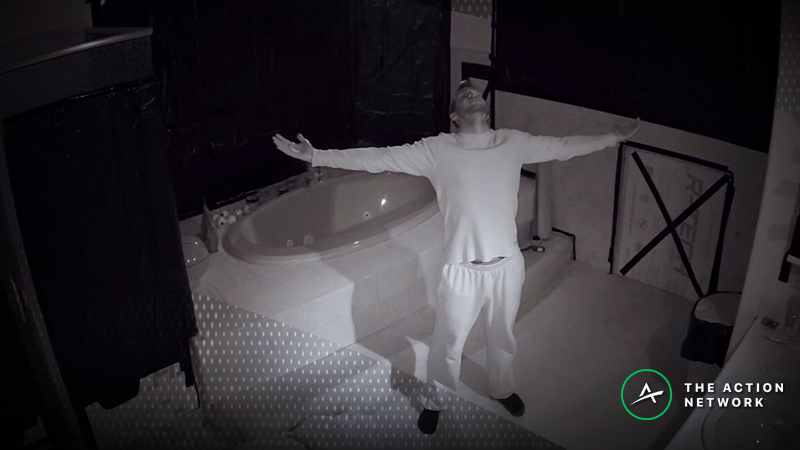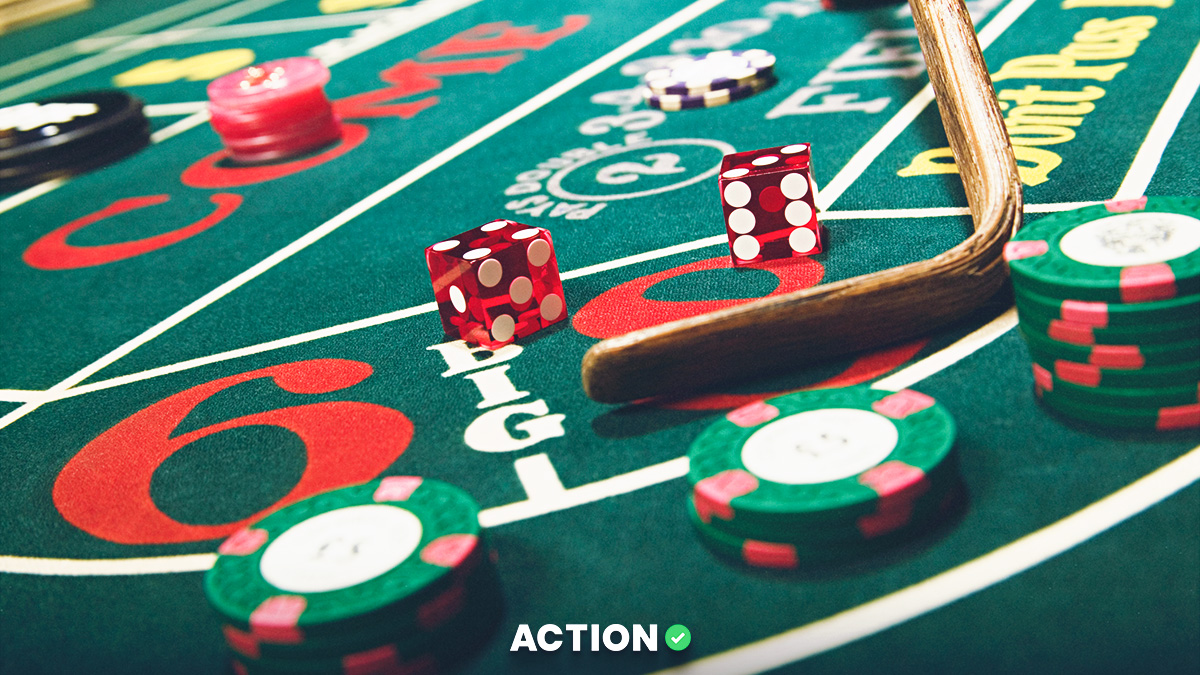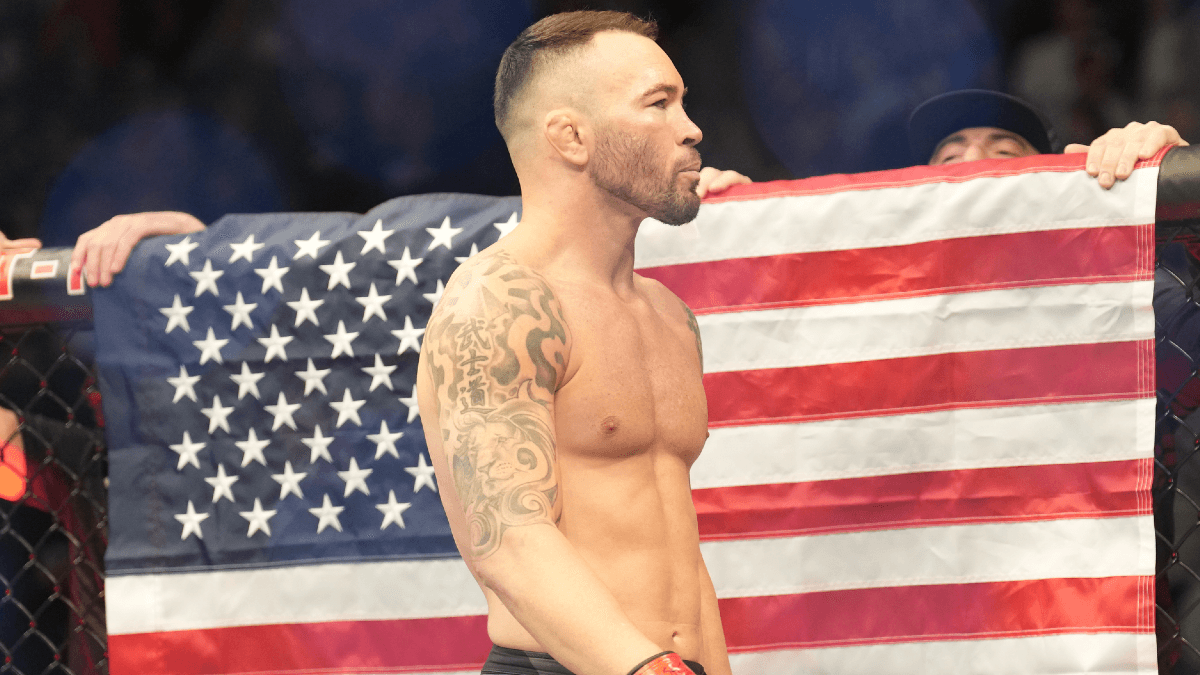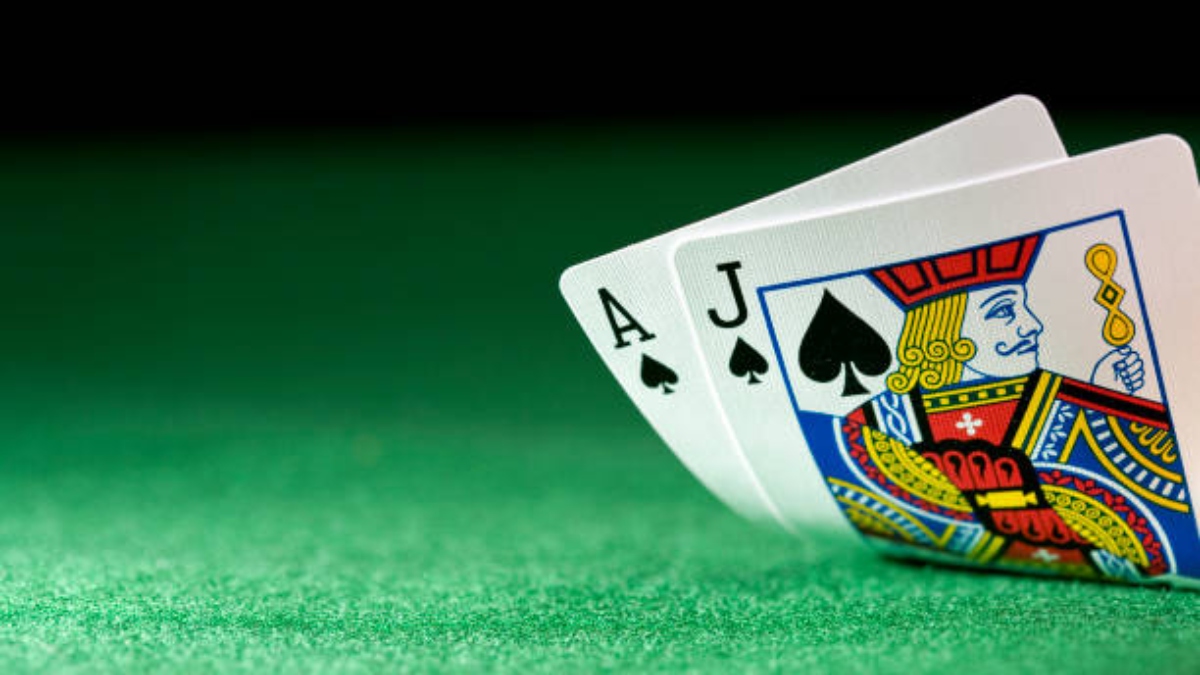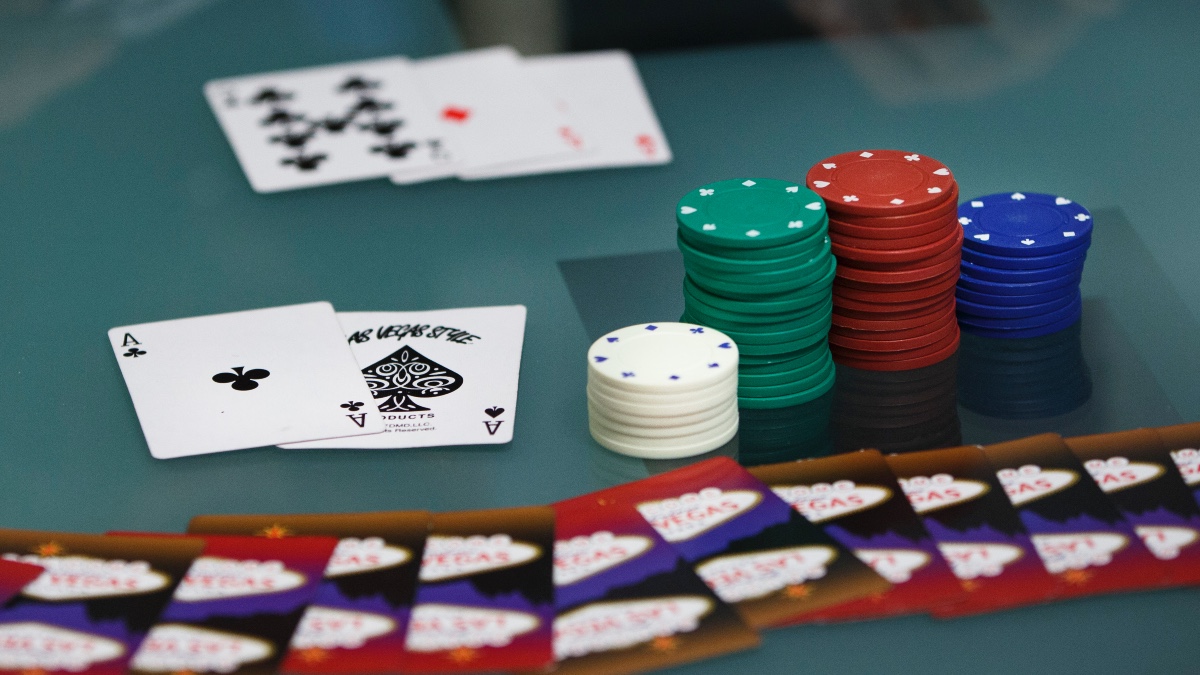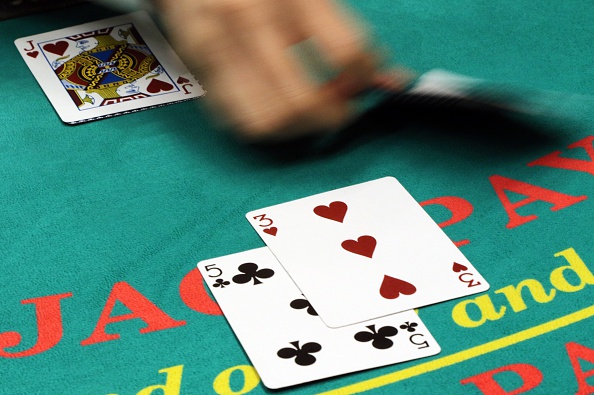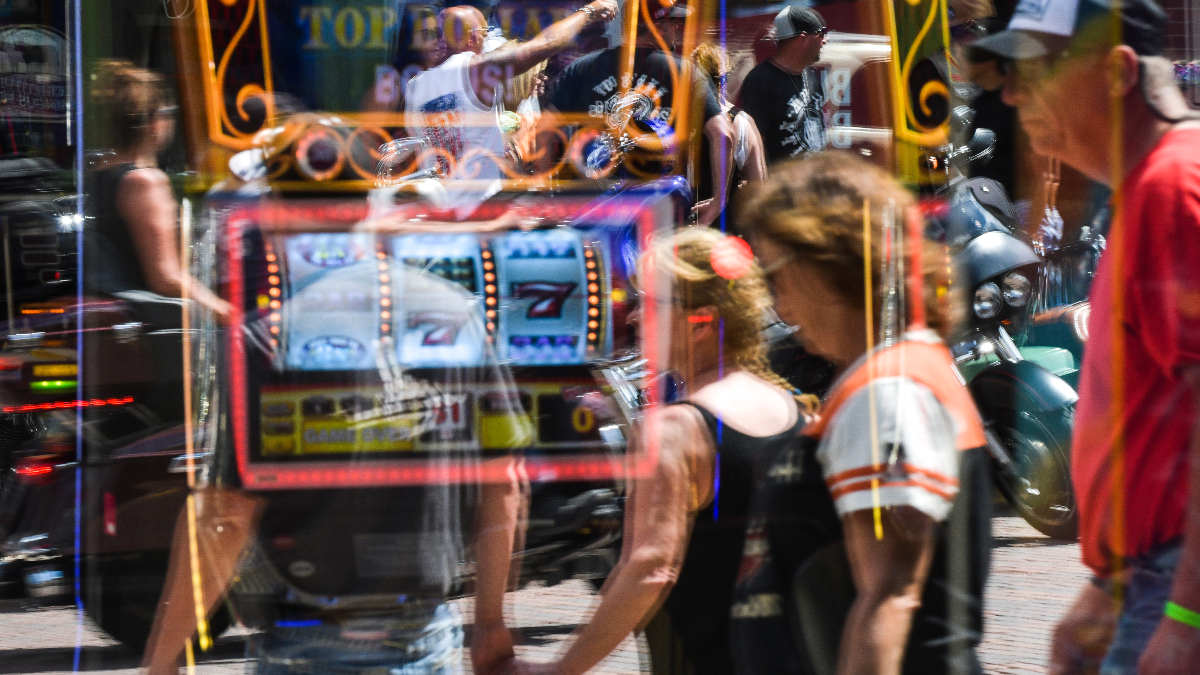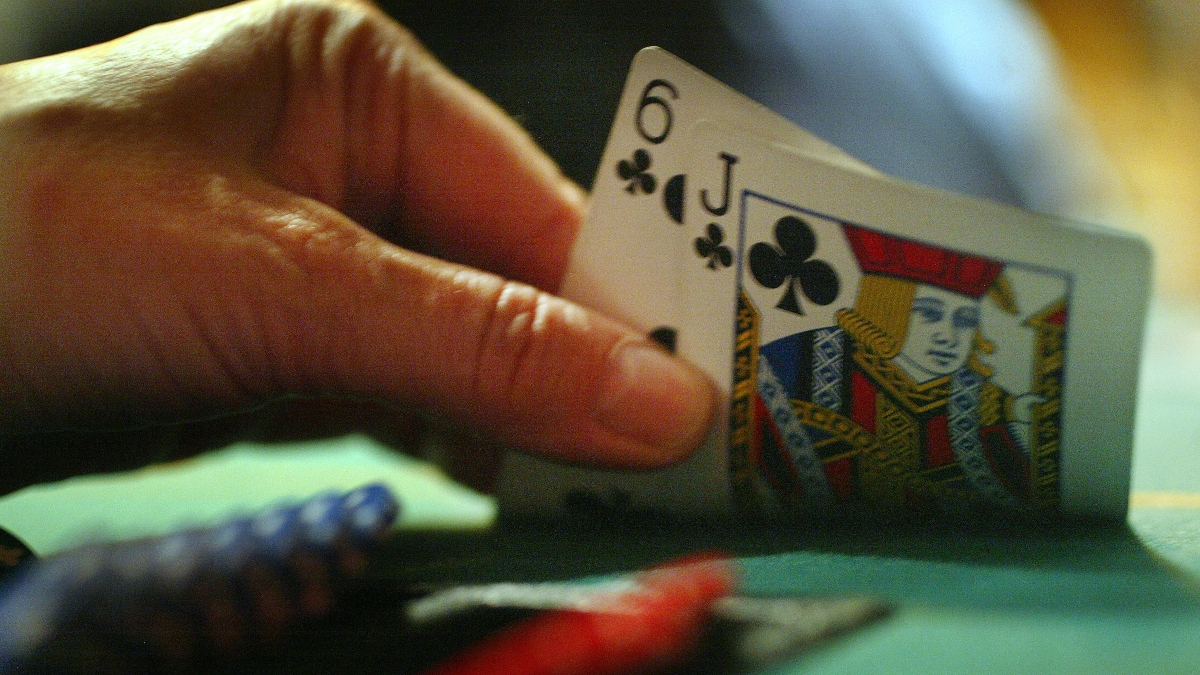- Rich Alati won $62,400 from fellow professional pro Rory Young after surviving 20 days in a pitch-black room with no contact to the outside world.
- The original bet was for $100,000 and 30 days, but the two came to a settlement on Day 20.
- Alati granted The Action Network his first in-depth interview after the bet, openly discussing his hallucinations, what he learned, how he kept from going crazy, and much more.
Sometime in mid-September, Rich Alati sat down to a poker table with fellow poker pro Rory Young, who he met a week before. The two engaged in a conversation that ended up in a very interesting place.
Young asked Alati how long he thought he could survive in complete darkness in a confined space. When Alati responded a month, Young wanted to make a bet. Within an hour, they had it.
If Alati could stay in a room for a month with no lights and almost no human interaction, he would win $100,000. Anything short of that, Young would be declared the winner and Alati would owe Young.
The Action Network interviewed Alati's father Richard about two weeks into his stay. We also obtained the contract for the stunt between the two players.
On Dec. 10, Young — shocked at Alati's confidence on Day 20 in solitary confinement — got Alati to agree to a buyout of $62,400, a story we broke on The Action Network. Expenses from the stunt will cost Young another $10,000 or so more.
Thirty-six hours after coming out of seclusion, Alati remarkably played in a poker tournament. But he didn't share his experiences until he agreed to talk to The Action Network for his first in-depth interview six days later.
Darren: So it was said that this place where you stayed was in Las Vegas. Where exactly was it and what type of room were you in?
Alati: I was in a bathroom in a house in Henderson, Nev., which we rented on AirBnB. We took the bathroom and had a contractor come in to build the room so it was boarded up, soundproofed and blacked out.
Darren: How big was the bathroom?
Alati: It was your standard master bathroom coming off a bedroom in a nice place.
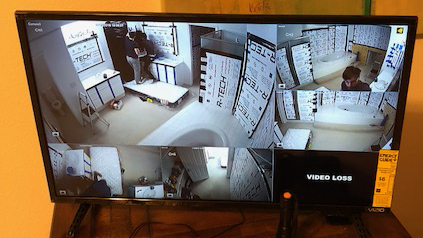
Darren: On Nov. 21, you entered the room. Something that I didn't get is, if it was completely dark and there wasn't a light in the fridge, how did you see what you ate? How did you know where things were?
Alati: So I flew in two days prior from the Bahamas and spend some time familiarizing myself where things were — the faucet and the bath. I'm really good at memorization, so I then arranged the room and remembered where things were. I set up the clothes in one place, my food in another and the toiletries in another.
Darren: And walking around?
Alati:The first couple of days, I pretty much crawled. I was feeling around a lot. But then I got accustomed to it and got cocky and bumped my head a couple times. Nothing major.
Darren: How many cameras were in there to monitor you?
Alati: There were four to five cameras. Some of them were going 24/7, while others were motion detected. Then there was a testimonial camera. That's where I could talk and it could be heard. If Rory wanted to talk to me, he could talk through that, as well.
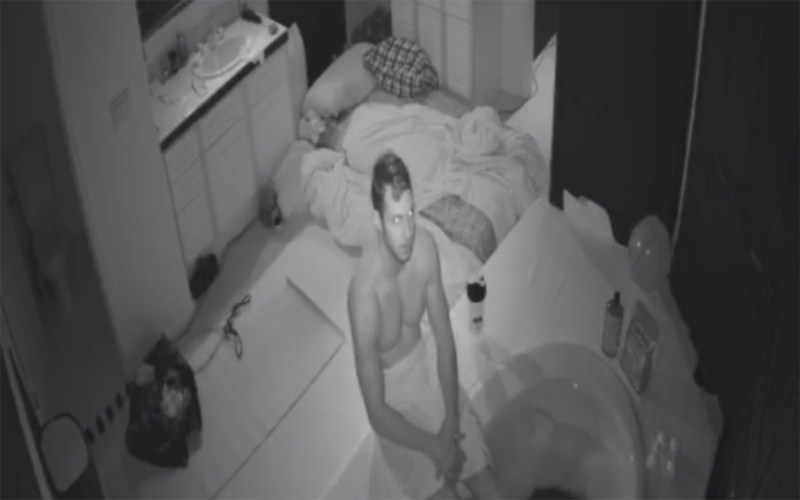
Darren: I know your father and your two sisters had access to watch the camera on a closed circuit feed. Did you ever talk to them?
Alati: My family wanted me to talk to the camera like three to four times a day and I was initially OK with that. But on what I think was around Day 3, I started hallucinating and I was so focused from that day until what was probably Day 10 because I didn't want to lose my mind.
Darren: What type of hallucinations are we talking about? Because that's one of the things that people said would make the bet so much of a challenge?
Alati: It started with shapes and colors. Then I saw a train. And I just had to convince myself it wasn't real. But that was probably my hardest moment because there was some fear to it. I remember, I was worried about how far my brain would go, so I went to sleep. The hallucinations didn't stop, but I just took the fear out of it. I started to embrace it. One time, the room was filled with all these white bubbles. I said to myself, "I know this is not real," but I'm going to go along with it and I had a fun bubble party. There were other times, I saw windows on the bathroom, I saw ceiling fans that weren't there, and at one point the ceiling just opened up and I saw the stars and the sky. It was absolutely beautiful.
Darren: Let's talk about your sleep. How much did you sleep in there?
Alati: I had read that people who had darkness, who slept underground, could sleep for 15 to 17 hours at a time, and in extreme situations could sleep for more than a day. I was hoping to do that, but I didn't have my own comfortable, big bed in there. So I got about 6 to 12 hours when I laid down.
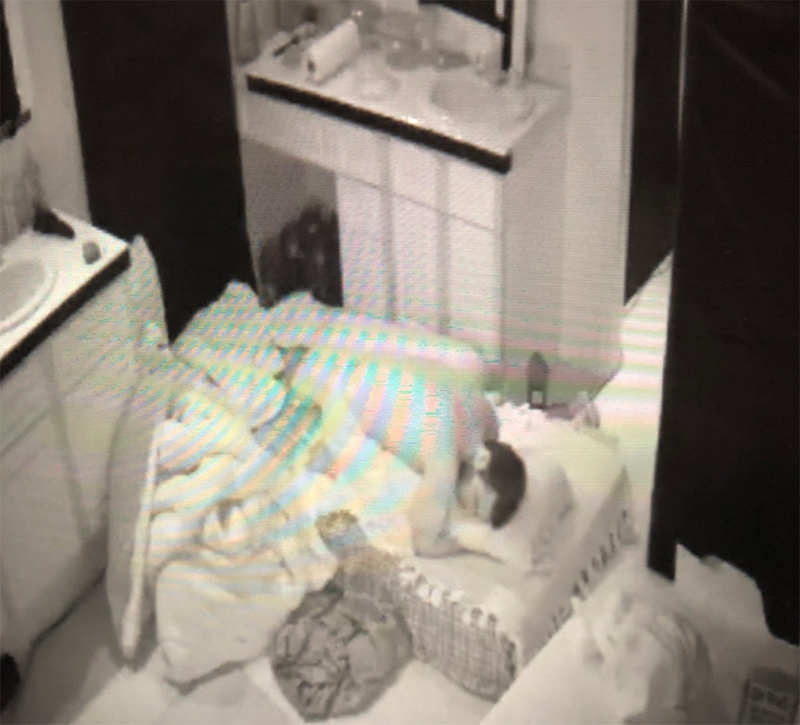
Darren: According to the contract, you had an emergency button that you could push up to 20 times. Did you ever push it?
Alati: Only on the first day. They convinced me that it might be dangerous when I get into the bath and they wanted to know when I was in there because, what happens if I drown? But I didn't have any fear of that happening after that day.
Darren: The food delivery part of the bet was a mind trick of sorts. You would get food delivered every three to six days and the deliveries were randomized, so you wouldn't know how long you were in there.
Alati: From what I could figure out with the food, I was usually one or two days off in terms of where I thought I was in the bet versus where I really was.
Darren: Garbage wasn't picked up every day. How did the food not smell?
Alati: We got food from a local restaurant called Flower Child. The good thing about these prepped meals was that there was very little waste. I just needed to make sure I ate it all.
Darren: Was the food any good?
Alati:Oh, it was amazing. I mean I don't know if it really was, but the experience of not having my sense of sight I think made everything else more extreme. Since I could not see what I was eating, I had to eat it and smell it. My tastebuds were so alive, and for the most part, what I was eating was the equivalent of cold leftovers.
Darren: So what was a typical day like?
Alati: I created a routine. I'd wake up and take a bath and a shower, I would eat, then I would do yoga and meditate and eat again. I worked out too. I was pretty creative. I did a lot of planks and sit-ups and pushups. I actually did incline pushups over the bathtub and dips from the ledge of the bathtub. I also had a resistance band and a massage ball. We talked about having a side bet for $10,000 if I would come out much skinnier. We also had a side bet that I couldn't do 1,000 pushups in a day. But we never made those.
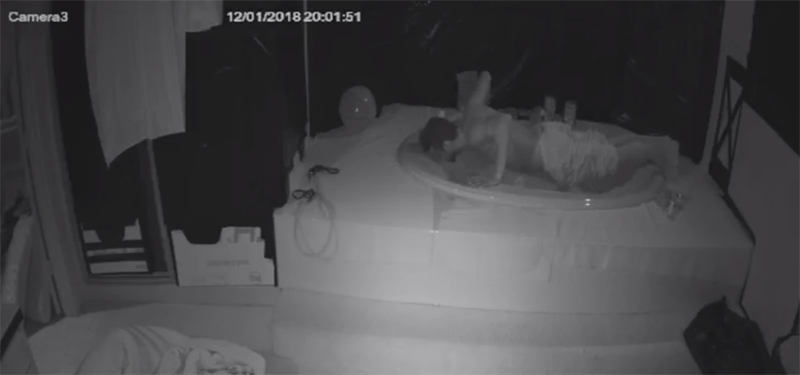
Darren: Did you have any clue whether it was day or night?
Alati: I did hear the faint sounds of a lawn mower or a weed blower, but I didn't have any idea if that was at 6 a.m. or 5 p.m. I was asking myself, "When does a landscaper typically work?"
Darren: Did you sing or talk to yourself?
Alati: I sang a little bit in the tub. When I was bored, I definitely did whistle. I talked to myself a lot but not out loud. I mean, in 20 days, I probably had 15,000 different thoughts and your mind races so quickly. So was glad I had yoga, meditation and prayer on my side.
Darren: It seems like you were well prepared to do this.
Alati:Rory didn't know this, but things that I was doing in my life were leading up to this moment. For the past six years, I had gotten into yoga, meditation and prayer. I had gone to Bali to a silent retreat where you don't speak. And when you don't speak, it turns you inward. I knew how to act in that room when it went inward. I knew how to train my thoughts to turn positive when I needed, which put me in a position to succeed.
Darren: It seems like things can really go south quickly if you can't change your mind.
Alati: You get all these thoughts about your past, present and future and they can turn really sour. So you have to have the skill to change thoughts, and one of the most important things is to be able to find a method to calm yourself.
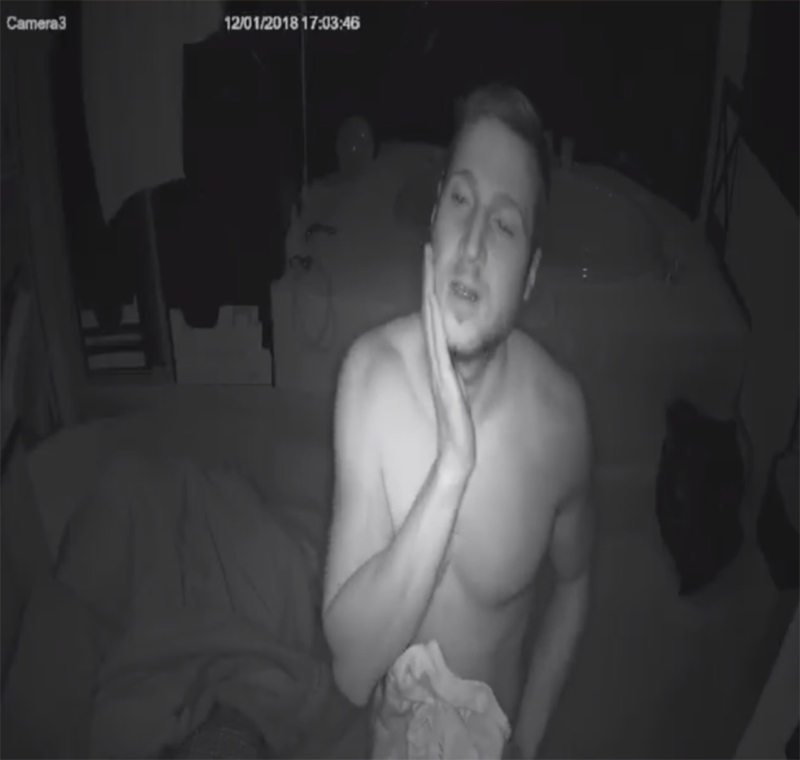
Darren: When did Rory start talking buyout?
Alati:On what I now know was Day 14, he asked if I wanted to buy out. I think that was his way of testing to see if I was panicking. Two days later, he said he had a buyout for me. That he would pay me $25,000 to agree to end the bet. I thought about it and just thought I had come this far and that was too low.
Darren: What happened next?
Alati: Four days later, on what I understand was Day 20, Rory came for the food drop and over the speaker asked if I would take $62,000, which was the prorated amount out of the number of days I was in there. I originally said no, I wouldn't take less than $75,000, but also realized my mind was hazy. After a couple minutes, I decided to accept it.
Darren: Your dad told me you would be all or nothing. Why did you decide to take the offer?
Alati: I thought about just being done with it so I could see my friends and family and do something productive. Us poker players take very calculated risks, and we don't really consider the all or nothing that much. I thought about the fact that 10 days was not going to be a walk in the park.
Darren: Then what happened?
Alati: So we agreed to $62,400. It took Rory some time to get the lawyer, and they had a camera crew filming me when I came out. I remember the red light from the camera was brutal. They gave me eclipse glasses so that my eyes could adjust. We kept the adjacent room dimly lit.
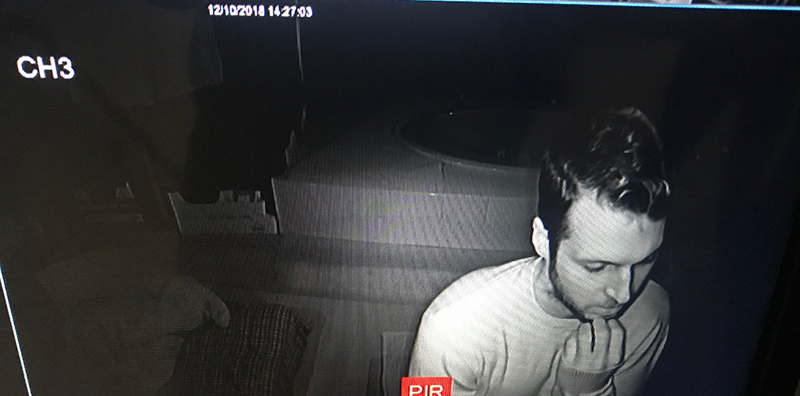
Darren: How were your eyes?
Alati: They adjusted pretty quickly. I got out, stayed in the room that night, peeling down the glasses to gradually adjust, and 36 hours after I got out of the room, I was playing in a poker tournament in the Bellagio.
Darren: Come on.
Alati: $10,400 entry fee, and I was playing really well actually. I was strong and focused and happy. I didn't cash, but I did make it to Day 3.
Darren: Were you aware how the story became while you were in there?
Alati: I had no idea. I was very disappointed that Rory didn't tell me how big it had gotten.
Darren: If you knew —
Alati:Yes, I would have finished it out. When news came out I was out, people were reaching out to me telling me how excited they were and how they were following. I had no idea.
Darren: How did being in solitary change you?
Alati: I just appreciate the simplest things, just being somewhere or seeing something or talking to someone. I was never like this before. I'd just be distracted all the time. Since coming out, I'm never distracted. I'm more focused, I'm more calm. I would say I have a better appreciation for people in general. I think I'm happier, my workouts are better. I actually feel better than ever before.
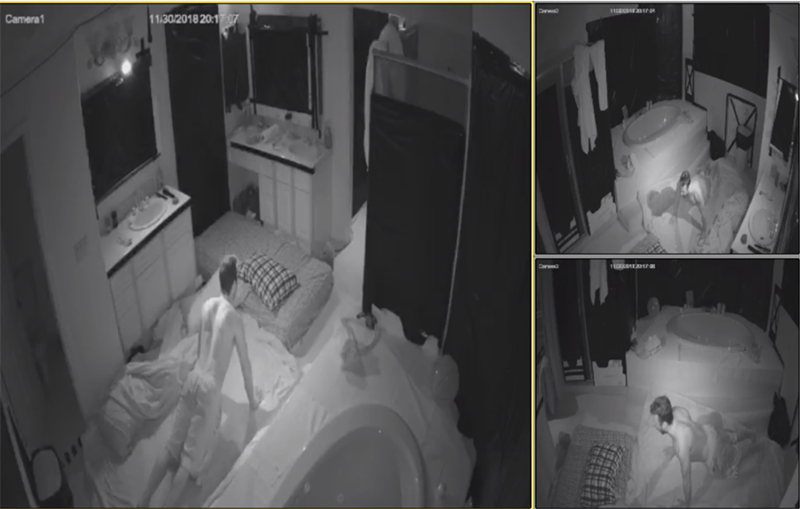
Darren: In thinking back on this, did you ever break down?
Alati: On Saturday, I went back to the house to get a couple things and the guys that built everything were back deconstructing it. And one of them said to the other, "This is the guy who spent all those days in this room." And I started telling them stories and two and half hours later, we were still talking. I told them about things that happened in the room and I had goosebumps and got pretty emotional.
Darren: What does $62,400 mean to you?
Alati: It allows me to not have to focus on playing right away and gives me a little bit more freedom to take my time.
Darren: Any news you missed when you on the inside?
Alati: I guess my Phoenix Suns are THAT bad.
Darren: (Looks up Phoenix Suns results) Yeah, Rich. They went 1-9 while you were in darkness.


